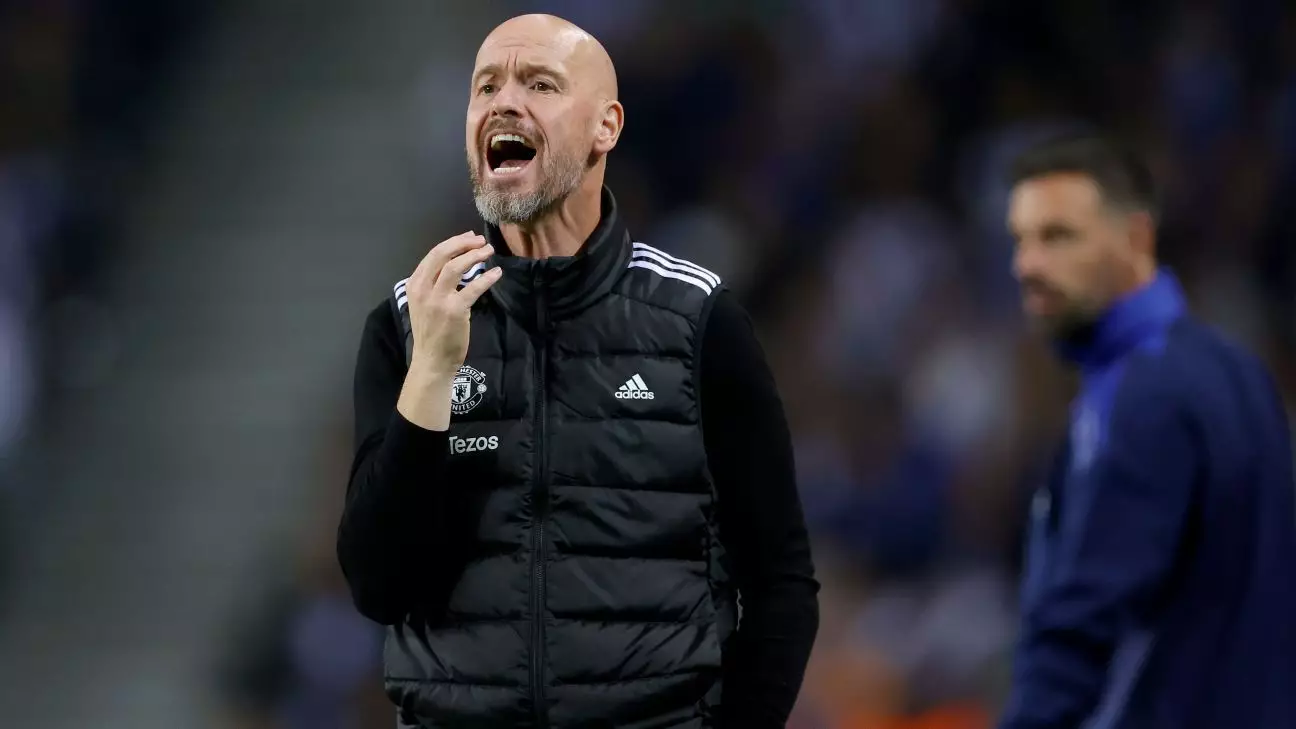As Manchester United gears up for a pivotal match against Aston Villa, the scrutiny surrounding manager Erik ten Hag has intensified significantly. Despite only entering his third season at the helm, Ten Hag finds himself in a precarious position, navigating a wave of expectations from both the fans and the club’s ownership. The recent inability of the team to convert leads into victories, epitomized by the disheartening 3-3 draw with FC Porto in the Europa League, has raised urgent questions about his leadership and the team’s direction.
Ten Hag recognizes the weight of expectation that comes with the managerial role at one of the most iconic clubs in football. While he has called for patience as he integrates new players and finesses his tactical approach, he readily acknowledges the harsh reality of modern football—managers are seldom afforded the luxury of time. The gravity of the situation is underscored by the fact that United has now gone four matches without a win, leading to amplified calls for immediate improvements.
In an environment that thrives on quick results, Ten Hag’s insistence on gradual evolution may not resonate well with the club’s stakeholders. This contradiction—between the need for a strategic buildup and the desire for immediate triumphs—poses a significant challenge for the Dutchman. As he battles to balance these demands, the club’s board remains watchful, aware that fan discontent can quickly translate into a crisis of confidence.
One of the major talking points surrounding United’s recent performances has been Ten Hag’s tactical decisions, particularly concerning new signings. The exclusion of summer acquisition Manuel Ugarte from the squad against Porto raised eyebrows, especially given the hefty £50 million price tag associated with the midfielder. Ten Hag pointed out that integrating new players into his system is not a straightforward process. “He needs time to integrate,” he explained, underscoring the complexities of acclimatizing both to the Premier League’s rigors and to the club’s specific style of play.
This philosophy may explain why Ten Hag opted to revert to the more familiar midfield trio of Casemiro, Christian Eriksen, and Bruno Fernandes—a combination that initially thrived during his first season. However, the reliance on tried-and-true methods poses a risk of stagnation, particularly when fresh talent is available and waiting in the wings.
Looking ahead to the match against Aston Villa, Ten Hag must navigate both tactical and psychological hurdles. Villa has showcased their prowess, recently dispatching Bayern Munich in a stunning Champions League upset, suggesting that they are at the peak of their form. Manchester United will have to muster every ounce of focus and strategy to contend with an opponent that carries both momentum and confidence.
Ten Hag’s tactical acumen will be put to the test against Villa’s potent attack and resilient defense. The prospect of bringing back captain Bruno Fernandes—a figure central to the team’s dynamic—may provide a much-needed boost, particularly after his red card against Tottenham was rescinded. Fernades’s return is crucial; his leadership and creativity could spark the struggling side and restore belief ahead of a testing fixture.
As he prepares for the clash with Villa, Ten Hag’s reflections on the team’s state encapsulate a broader truth about life at the top level of football: success requires patience, but context is crucial. While he seeks to build a unified team capable of challenging for trophies, he must also deliver results in the present. The duality of his role illustrates the inherent tensions in modern management, where dreams of longevity clash with the reality of performance-based evaluation.
At this juncture, it may well be a defining moment for Ten Hag. The outcomes of the upcoming matches may play a pivotal role in determining not just the state of the team’s aspirations this season but also in shaping the trajectory of his own managerial career. In professional sports, results dictate narratives, and the coming days will be significant in framing both Ten Hag’s future and the fate of Manchester United.

